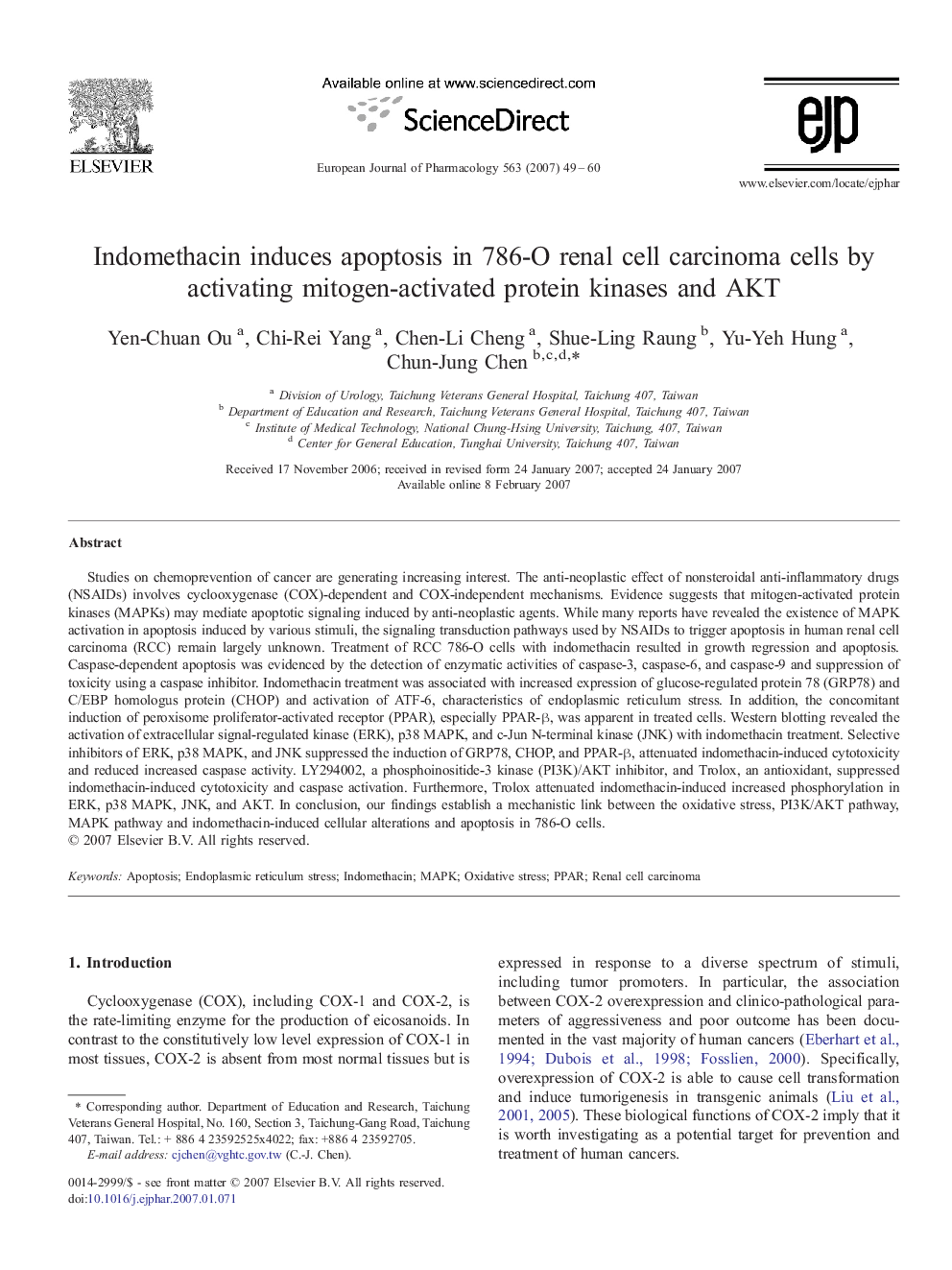| Article ID | Journal | Published Year | Pages | File Type |
|---|---|---|---|---|
| 2536323 | European Journal of Pharmacology | 2007 | 12 Pages |
Studies on chemoprevention of cancer are generating increasing interest. The anti-neoplastic effect of nonsteroidal anti-inflammatory drugs (NSAIDs) involves cyclooxygenase (COX)-dependent and COX-independent mechanisms. Evidence suggests that mitogen-activated protein kinases (MAPKs) may mediate apoptotic signaling induced by anti-neoplastic agents. While many reports have revealed the existence of MAPK activation in apoptosis induced by various stimuli, the signaling transduction pathways used by NSAIDs to trigger apoptosis in human renal cell carcinoma (RCC) remain largely unknown. Treatment of RCC 786-O cells with indomethacin resulted in growth regression and apoptosis. Caspase-dependent apoptosis was evidenced by the detection of enzymatic activities of caspase-3, caspase-6, and caspase-9 and suppression of toxicity using a caspase inhibitor. Indomethacin treatment was associated with increased expression of glucose-regulated protein 78 (GRP78) and C/EBP homologus protein (CHOP) and activation of ATF-6, characteristics of endoplasmic reticulum stress. In addition, the concomitant induction of peroxisome proliferator-activated receptor (PPAR), especially PPAR-β, was apparent in treated cells. Western blotting revealed the activation of extracellular signal-regulated kinase (ERK), p38 MAPK, and c-Jun N-terminal kinase (JNK) with indomethacin treatment. Selective inhibitors of ERK, p38 MAPK, and JNK suppressed the induction of GRP78, CHOP, and PPAR-β, attenuated indomethacin-induced cytotoxicity and reduced increased caspase activity. LY294002, a phosphoinositide-3 kinase (PI3K)/AKT inhibitor, and Trolox, an antioxidant, suppressed indomethacin-induced cytotoxicity and caspase activation. Furthermore, Trolox attenuated indomethacin-induced increased phosphorylation in ERK, p38 MAPK, JNK, and AKT. In conclusion, our findings establish a mechanistic link between the oxidative stress, PI3K/AKT pathway, MAPK pathway and indomethacin-induced cellular alterations and apoptosis in 786-O cells.
